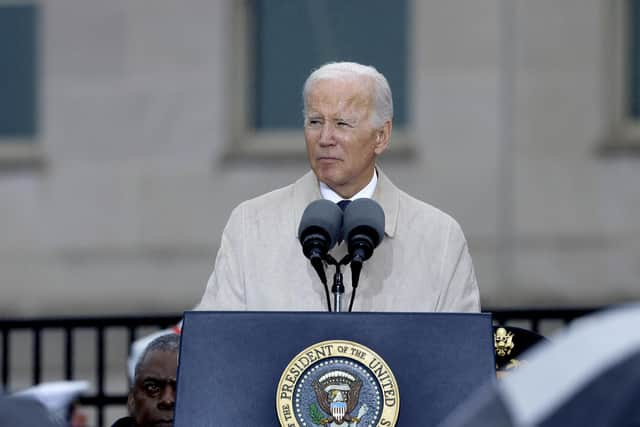US President Joe Biden provides details of trip to mark 25th anniversary of Good Friday Agreement
and live on Freeview channel 276
He is then scheduled to travel to the 26 counties for official engagements in Dublin and for trips to Louth and Mayo where he has family connections.
Advertisement
Hide AdAdvertisement
Hide AdNotwithstanding Mr. Biden’s penchant for quoting Seamus Heaney, the US President has not listed Derry as one of the stops on his itinerary.


In a statement issued on Wednesday morning White House Press Secretary Karine Jean-Pierre confirmed: “President Joseph R. Biden, Jr. will travel to the United Kingdom and Ireland from April 11-14.
"President Biden will first travel to Belfast, Northern Ireland from April 11-12 to mark the tremendous progress since the signing of the Belfast/Good Friday Agreement 25 years ago and to underscore the readiness of the United States to support Northern Ireland’s vast economic potential to the benefit of all communities.
"The President will then travel to Ireland from April 12-14. He will discuss our close cooperation on the full range of shared global challenges. He will also hold various engagements, including in Dublin, County Louth, and County Mayo, where he will deliver an address to celebrate the deep, historic ties that link our countries and people. Additional information about the trip will be forthcoming.”
Advertisement
Hide AdAdvertisement
Hide AdMr. Biden, who identifies as Irish, has regularly quoted lines from the late St. Columb’s College-educated Nobel Laureate Seamus Heaney’s poem ‘The Cure at Troy’: “History says, don’t hope on this side of the grave, but then, once in a lifetime, the longed-for tidal wave of justice rises up and make hope and history rhyme.”
The US President’s predecessor Bill Clinton quoted from the same poem when he addressed the people of Derry in Guildhall Square in 1995.
He was a long-time admirer of the late John Hume, remarking upon the late Derry peacemaker’s death in 2020 how ‘he saw the power of political leadership to bring a divided people together around a common purpose, without which the Good Friday Agreement would never have come to pass’.